Regent’s New School of Nursing Receives a Prestigious Accreditation
In recent years, Regent leadership has been committed to expanding the university’s areas of study to include more programs in the field of medicine. By launching a College of Healthcare Sciences (CHS) on August 1, 2018, Regent made it possible for students to pursue bachelor’s, master’s and doctoral degrees in several disciplines. They include nursing, healthcare administration and gerontology. Future areas may include physical and occupational therapy, phlebotomy, radiology, public health, and other in-demand fields.
In the fall semester of 2018, the university’s School of Nursing officially opened its doors. Soon after, faculty, staff and students received amazing news: Regent was granted initial accreditation by the Commission on Collegiate Nursing Education (CCNE) for the university’s “RN to Bachelor of Science in Nursing” degree program.
“We are delighted to receive this prestigious five-year accreditation, which is an exceptional academic achievement,” says Regent Founder, Chancellor and CEO, Dr. M.G. “Pat” Robertson. “This accomplishment will enable us to attract even more students to become part of the ‘adventure in Christian higher education’ that is Regent University.”
CCNE is the premier accreditation agency for baccalaureate, graduate and residency programs in nursing. The process began more than three years ago and could not have been completed without significant contributions from many faculty and staff members, especially those in the university’s School of Nursing.
The university’s goal is to train future caregivers and administrators to gain an understanding of the healthcare system and develop the skills and knowledge to be a force for good in the industry.
“The critical roles of nursing and healthcare professionals are growing and expanding. The CCNE accreditation allows Regent University to educate and train practitioner leaders at the highest levels of nursing quality to saturate and lead in medical fields in the United States and the world,” explains Dr. Gerson Moreno-Riaño, Regent’s executive vice president for Academic Affairs.
The university’s goal is to train future caregivers and administrators to gain an understanding of the healthcare system and develop the skills and knowledge to be a force for good in the industry. The university will deliver instruction from a strong Christian foundation to equip students to serve others with excellence as they make important medical and ethical decisions.
The Bureau of Labor Statistics projects 19-percent employment growth in healthcare by 2024 and more than one million new nursing jobs across the United States by 2030. Regent’s “RN to B.S. in Nursing” program, the School of Nursing and the College of Healthcare Sciences want to serve as leading healthcare-workforce development partners for Virginia and the nation.
Dr. Patricia Kraft, the Regent nursing program’s director and distinguished professor, has met with key hospitals and nursing leaders in the region. She believes that helping nurses attain advanced training is important and that the university’s accreditation in this program is an essential requirement and mark of excellence.
“At Regent, we immerse our students through teaching and program structure to ensure they have hands-on, practical application and are able to lead well in their patient service,” Kraft says. “Our mission to serve aligns with our partners in the healthcare industry, and they have welcomed us. We built a strong, accredited program that will serve them with outstanding graduates.”
For more information about Regent’s healthcare and nursing programs, visit regent.edu/nursing or call 800.373.5504.
The RN to B.S. in Nursing at Regent University is accredited by the Commission on Collegiate Nursing Education (http://www.ccneaccreditation.org).










